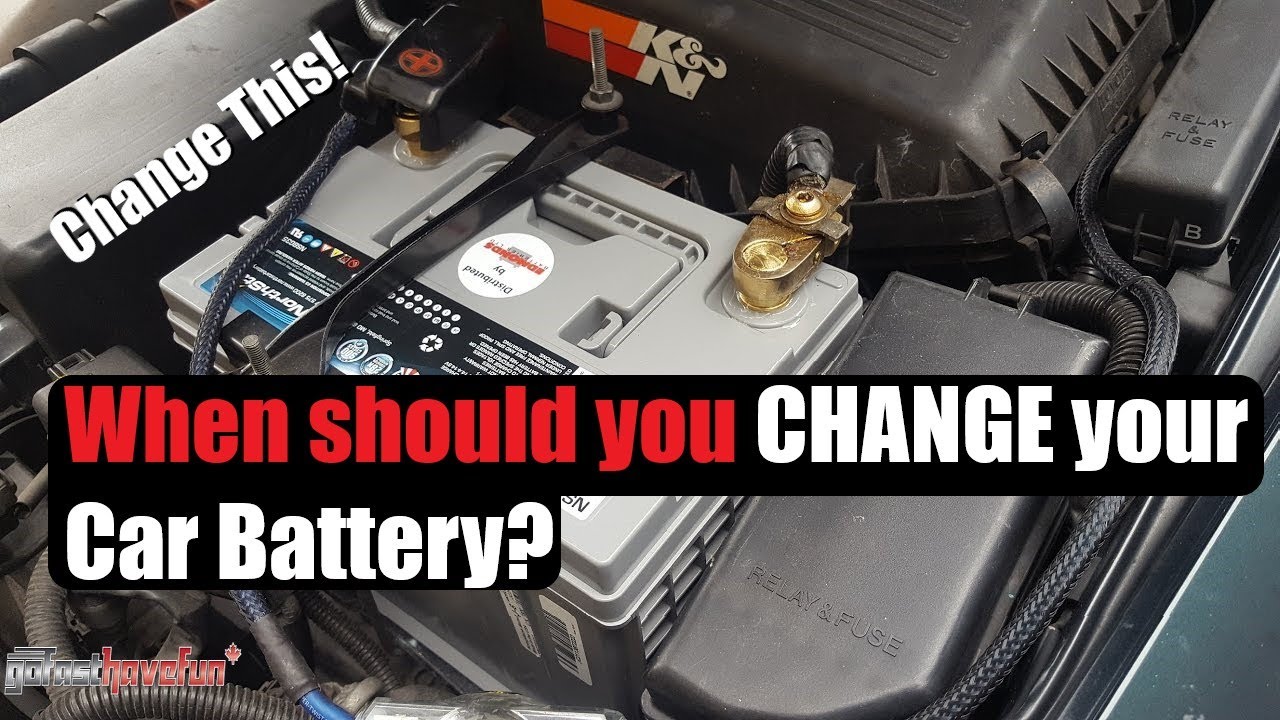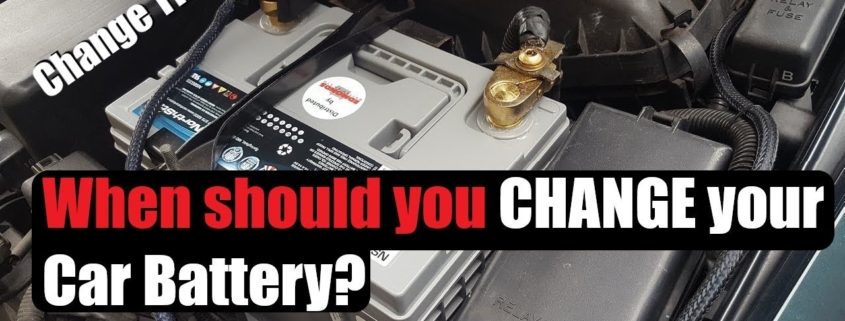How Often to Replace Your Car Battery?
Does your car struggle to start on cold winter mornings? Do the lights dim whenever you turn on the AC or blast the stereo? If so, your battery may be on its last legs.
But how do you know exactly when it’s time to swap in a shiny new battery?
Well, in this detailed guide you’ll discover exactly how long car batteries last. As a professional rechargeable battery pack manufacturer, I’ll also reveal 5 signs that your battery needs replacing ASAP.
Finally, you’ll get a simple calendar reminding you when to test (and replace) your battery so that you never get stranded by the side of the road.

Why Should You Care About Your Car Battery?
Before we dive in, you may be wondering…
Why pay attention to something as boring as a battery?
Fair question.
See, your battery does a lot more than start your car. It also:
- Powers essential electronics like airbags, anti-lock brakes and stability control
- Runs accessories like lights, wipers and your stereo
- Evens out stray voltages to protect sensitive electronics
So if your battery kicks the bucket, some systems simply won’t work. Others could act glitchy or sporadic.
And did I mention that a bad battery is the #1 cause of breakdowns?
With that in mind, let’s take a look at battery basics so that you know what to look out for.
How Long Do Car Batteries Last?
Back in the day, car batteries only lasted 2-3 years. But thanks to improvements in materials and charging systems, today’s batteries last 4-5 years on average.
However, battery life depends heavily on four factors:
1. Heat
Letting your battery cook under the hot summer sun will shorten its lifespan. That’s because heat causes the water inside to evaporate faster, spiking corrosion.
To combat heat…
- Park in the shade or a garage whenever possible
- Consider a battery blanket for winter to reduce strain on warm ups
2. Cold Temperatures
Frigid winter temps force your battery to work extra hard. Cold oil also drag starts down further. That added strain can lead to early failure.
When it’s super cold out, give your engine a few minutes to warm up before driving. That helps reduce load on the battery.
An insulated battery blanket will also improve winter performance and longevity.
3. Short Trips + Long Downtime
The alternator recharges your battery while driving. But short trips prevent a full refresh, while downtime allows natural discharge over time.
Give your battery a boost every couple weeks by taking a good long drive. If your car sits a while, consider a trickle charger like The Battery Tender.
4. Neighborhood Power Outages
Yup, even brief power outages drain your car’s battery a tiny bit. So if the lights flicker a couple times a month in your area, your battery takes a slight hit each time.
The impact is small. But over 3-4 years those tiny hits add up, shortening lifespan.
Not much you can do to prevent it. But be aware if your area has shoddy power delivery.
5 Signs Your Car Battery is Dying
While most batteries slowly lose capacity over time, others can fail unexpectedly.
That’s why I recommend watching for these common warning signs:
1. Dim headlights
Your headlights dim slightly when idling or using accessories? That often indicates a battery starting to fade.
Rev the engine — if the lights brighten up, it’s usually the battery, not the alternator.
2. Slow cranking
When you turn the key, a strong battery fires the engine over quick. A weak battery cranks slower, sounding sluggish.
3. Electrical problems
If your power locks, windows or stereo act up inexplicably, low voltage may be the culprit.
4. Battery warning light
That little battery icon on your dash alerts you when the charging system isn’t working correctly. Don’t ignore it.
5. Swollen/Misshapen case
If your battery case swells up like a balloon, that indicates internal failure. Have it checked out ASAP.
Seeing one or more of those symptoms? Have the battery tested next oil change to see if replacement is needed.
Speaking of which…
How Often Should You Replace Your Car Battery?
You may be wondering:
“Do I really need to replace my battery every 3-5 years if it’s still working?”
Excellent question.
While you certainly can wait until it dies, I don’t recommend it. Why? Because once a battery fails, it tends to fail hard and fast.
You don’t want to discover your battery is toast when you’re scrambled in the company parking lot on a Monday morning. Nor stuck on the freeway shoulder in a snowstorm.
That’s why I suggest proactively swapping your battery out every 4-5 years, even if no issues pop up before then. A few extra bucks is worth avoiding the huge inconvenience of an unexpected failure.
And remember, extreme heat or cold weather can shorten lifespan below the average 4-5 years.
Calendar Reminders For Hassle-Free Battery Maintenance
To make sure you stay on track, I’ve created a simple calendar checklist you can follow:
- Years 1-3: No action needed (unless issues appear)
- Year 4: Quick battery test at oil change
- Year 5: Consider replacing battery proactively
- Year 6+: Replace battery if not done yet
Adjust earlier if you experience frequent heat waves or winter extremes. Or if your battery ever tests as weak/failing.
Following that schedule ensures you’re covered in case of abrupt failure, while avoiding premature replacement when still strong.
Let’s quickly recap what we covered today:
- Car batteries typically last 4-5 years
- Heat, cold and short trips can shorten lifespan
- Watch for dim lights, slow cranking and other warning signs
- Consider replacement around years 4-5 regardless of condition
- Follow the checklist to remind yourself when to test & swap battery
Taking this proactive approach gives you peace of mind against sudden breakdowns. And catching issues early on allows swapping the battery on your own schedule.
Now it’s your turn.
To make sure you don’t forget, set calendar reminders on the maintenance schedule provided above. Then check back yearly to monitor your battery’s condition.
Stay safe out there!








